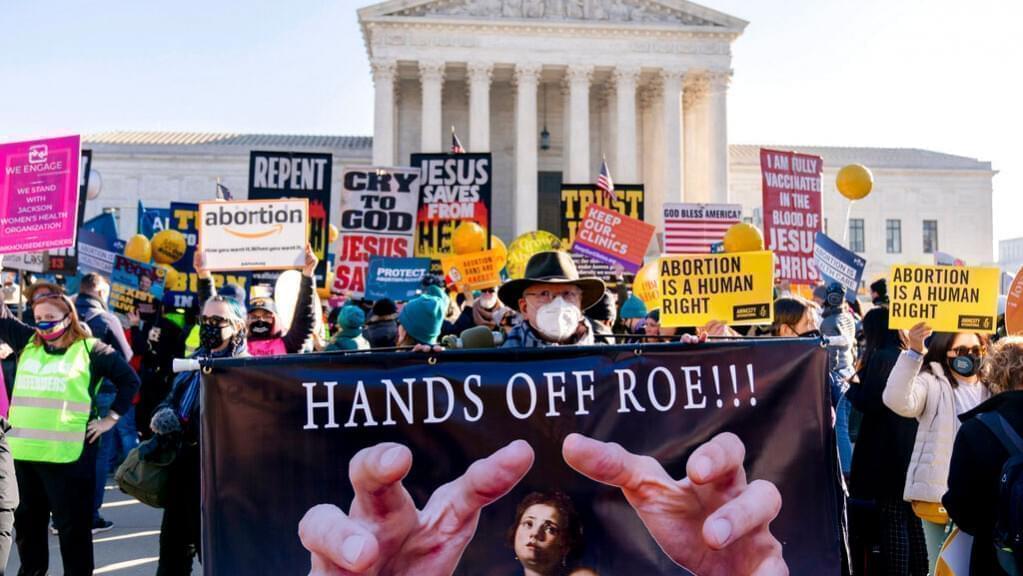More people could travel to Illinois for abortion care

Stephen Parlato of Boulder, Colo., holds a sign that reads "Hands Off Roe!!!" as abortion rights advocates and anti-abortion protesters demonstrate in front of the U.S. Supreme Court, Wednesday, Dec. 1, 2021, in Washington, as the court hears arguments in a case from Mississippi, where a 2018 law would ban abortions after 15 weeks of pregnancy, well before viability. AP Photo/Andrew Harnik
But here in Illinois, where the right to an abortion is recognized by the state supreme court, clinics would see an uptick in patients traveling from out of state. We talked about this potential increase in patients making the long trip to Illinois with a lawyer and professor, the executive director of an Illinois reproductive health clinic, and the executive director of the Midwest Access Coalition.
GUESTS:
Katie Watson, JD
Associate Professor of Medical Social Sciences, Medical Education, and Ob/Gyn Faculty, Medical Humanities & Bioethics Graduate Program, Northwestern University Feinberg School of Medicine |Author of Scarlet A: The Ethics, Law, and Politics of Ordinary Abortion
Erin King, MD
Executive Director, Hope Clinic for Women, Ltd.
Diana Parker
Executive Director, Midwest Access Coalition

